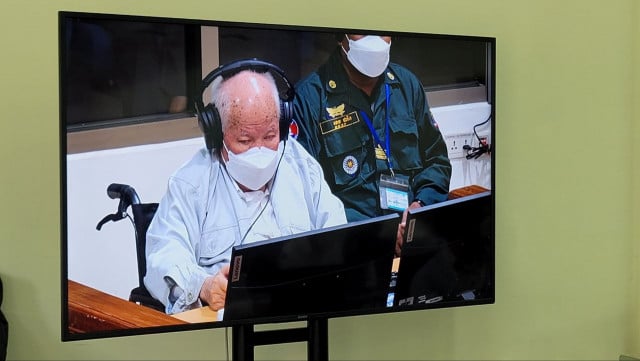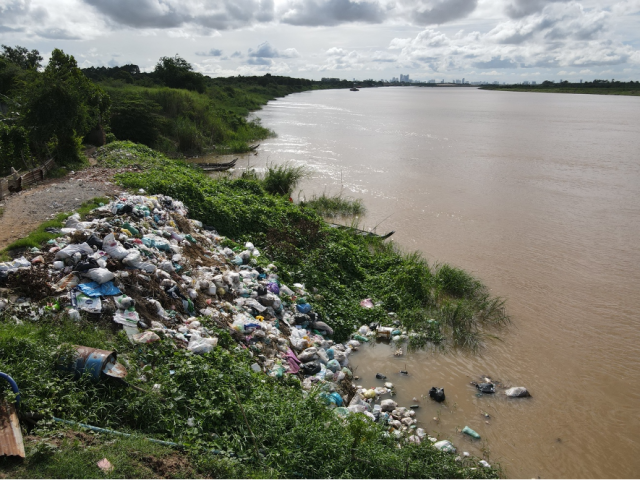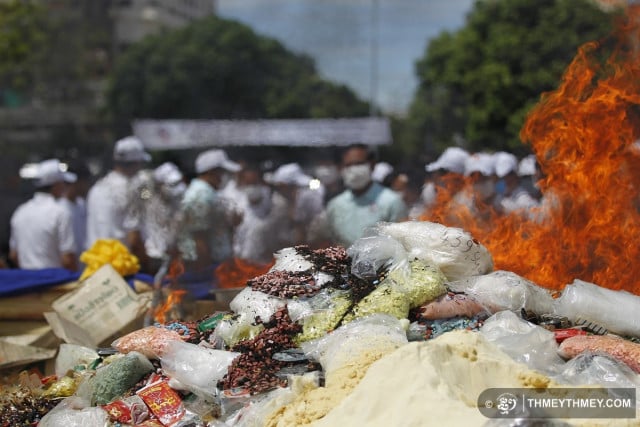The Khmer Rouge Tribunal: A Missed Opportunity for Ordinary Justice?

- By Cambodianess
- September 25, 2022 10:00 AM
The sentence of life imprisonment of Khieu Samphan for genocide and crimes against humanity—murders, enslavements, forced marriages, rapes—and other grave breaches of the Geneva Conventions—being upheld by the Extraordinary Chambers in the Courts of Cambodia (ECCC) on Sept. 22 has put an end to the judicial activities of these courts established by the United Nations and the Cambodian government to bring to trial “senior leaders of Democratic Kampuchea.”
Now 91 years old and already sentenced to life imprisonment in 2014 for crimes against humanity during the evacuation of Phnom Penh in 1975, the sentence having been upheld on appeal in 2016—Khieu Samphan was the third high-ranking Khmer Rouge leader to be sentenced by these courts, after Duch and Nuon Chea, both having passed away.
Khieu Samphan has always denied having been involved in any way in the crimes committed during the Khmer Rouge regime of 1975 to 1979. However, the court of appeal, like the court of first instance, held that, “[a]s the face of Democratic Kampuchea, Khieu Samphan supported and promoted the common purpose, and encouraged, incited and legitimized its implementation through criminal policies,” which led to the death of more than 2 million people between 1975 and 1979.
Through the ECCC and their international and Cambodian judges, international justice has clearly stated that leaders of a country are accountable for the acts of violence and crimes linked to their exercise of power, whether or not they have blood on their hands, whether or not they have personally ordered them.
It was not me, said Khieu Samphan in court. "Do you really think that that was what I wanted to happen to my people," he said. “Whatever I did was to protect the weak.” Taking again a defensive stance, he also said “[i]t is easy to say that I should have known everything.” All those excuses would eventually be rejected by the ECCC, which have thus increased the jurisprudence of international jurisdictions set up to try state crimes and of those implementing them.
Beyond rendering justice to the victims directly affected by the crimes committed during the Democratic Kampuchea regime, one of the objectives of the ECCC promoters and participants no doubt is that the ECCC’s legacy will be a milestone in the field for jurists and, let’s hope, from now on for political leaders now fully aware of the penalties they may face if they take the same criminal path as the leaders of Democratic Kampuchea in the exercise of power.
Among the objectives of these courts was also that of helping advance the Cambodian justice system by implementing, within it, practice procedures in terms of respecting the rights of the accused and civil parties.
Judges, prosecutors, local and international lawyers of first instance and of appeal courts supported by a significant bureaucracy therefore have had, during nearly two decades, more than $300 millions to run a machinery intended to be exemplary in terms of international law and simply law.
The ECCC were in session during all those years far from Phnom Penh city center, which showed that this was meant to be done without the interference of daily scheduling. Hundreds of people of all categories were brought in by vehicles from all over the country to witness the workings of this extraordinary justice meant to try extraordinary crimes. In front of a packed house was staged the greater justice, the true justice with hours and hours of debates, witnesses, experts, counter-experts and torrents of words quite often incomprehensible for ordinary people.
Will that have served ordinary justice, that to which are entitled ordinary defendants in regular courts?
Will not this have given substance to the concept of a justice that knows to bend over backwards when it keeps in line with superior, political, geopolitical or other interests but that, for the penniless or insignificant, is neglected?
These are questions that one should not miss the opportunity to ask when comes the time to make the assessment of the ECCC and to draw lessons for the future.
That international jurisprudence be enriched because of them is very important. But that plain justice emerges increased in stature in everyone’s eyes is just as important.















